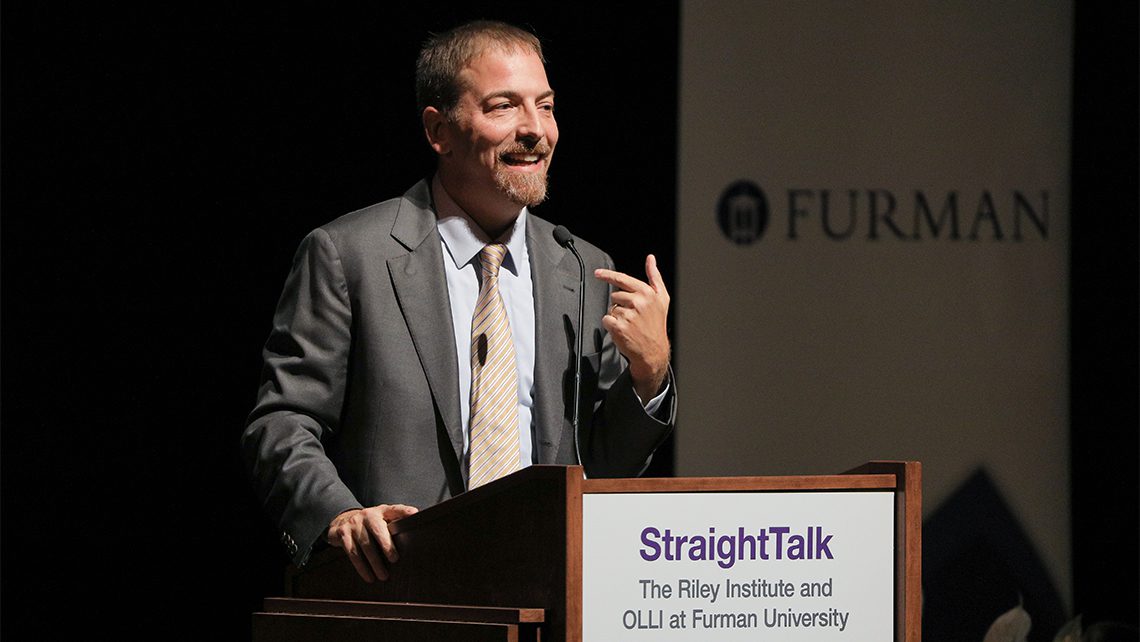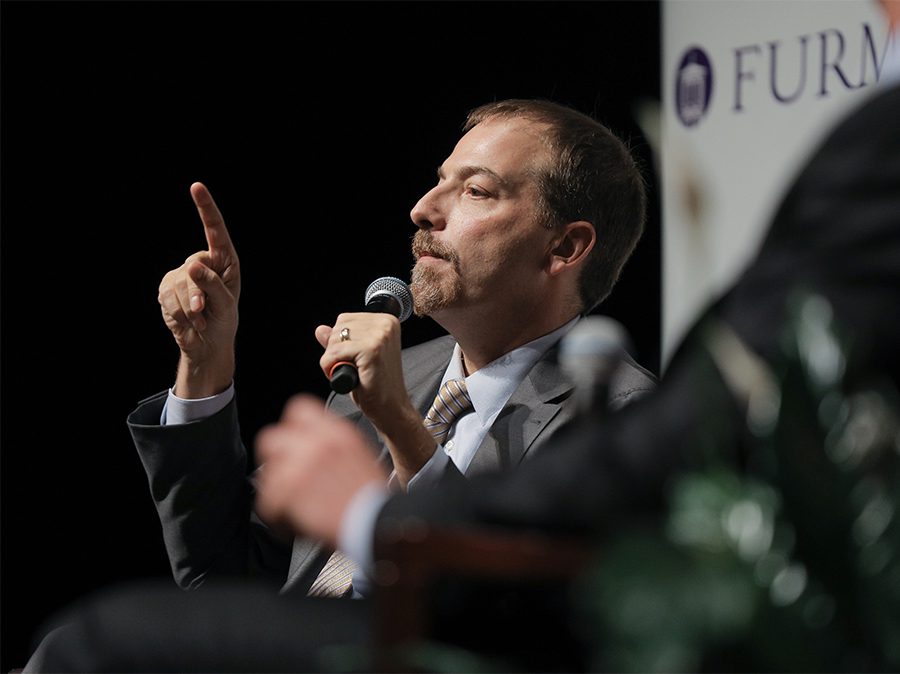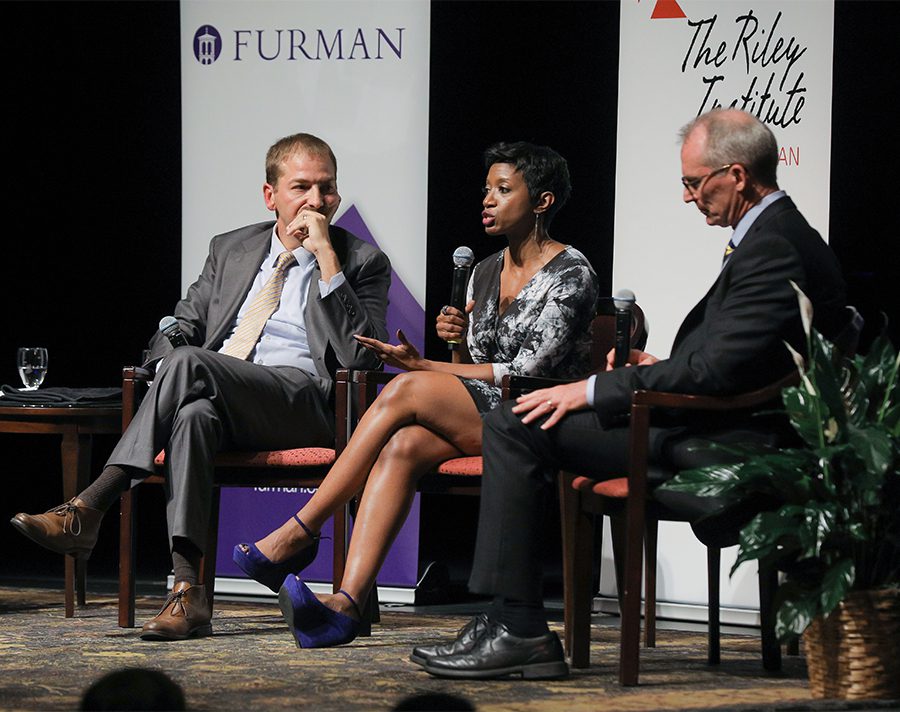Chuck Todd discusses ‘Media and Politics in a Post-Truth Era’

When Furman Politics and International Affairs Professor Danielle Vinson introduced part two of the series on “Media and Politics in a Post-Truth Era” Thursday evening, she cited a Pew Research Center study that showed only 20 percent of Americans trust the news media.
If the reception for keynote speaker Chuck Todd, host of NBC’s “Meet the Press,” was any indication, that 20 percent was well represented in the crowd that filled McAlister Auditorium.

Todd said it’s becoming harder to tell the difference between politicians and journalists these days.
The program, sponsored by the Riley Institute at Furman and the Osher Lifelong Learning Institute, was titled “Alternative Facts and Partisan Media: Missing Walter Cronkite.” Todd also participated in a panel discussion after his talk that included Katrice Hardy, executive editor of The Greenville News, and Bob Inglis, a former member of the U.S. House of Representatives for South Carolina’s 4th district.
Todd’s comments ranged from his love of the Miami Hurricane football team (he grew up in Miami) to references to the HBO hit show, “Game of Thrones,” but he focused on the theme of the night: How did America arrive at this level of distrust in the media and how can it be fixed?
Todd said confidence in the media has been steadily eroding over the last several decades, especially as it becomes harder to tell the difference between politicians and journalists. Since the Kennedy administration, at least one member of each administration has become part of the media or a media member has joined the White House, Todd said.
“That has become the norm,” he said. “There are people who go into TV news using it as a launching pad for going into office, and there are people who run for office hoping it leads to a talk show. This is messed up.”
Todd stressed the importance of building a wall between the role of reporters as watchdogs and the role of politicians. “Are we (journalists) the same watchdogs that we have pledged to be?”

In the second part of the program, Todd, Katrice Hardy and Bob Inglis took questions from the audience.
Todd also said the age-old charge of media bias is not unfounded. “There is bias in the media,” he said. “We are born with original bias, to borrow a phrase.” It always plays a role, he added, and it’s not always ideological. It can also be cultural, reflecting the journalist’s experiences and environment.
“We were more likely to do a story on the ‘Dreamer’ who might get deported than we were on the opioid addict looking for help in rural Missouri,” Todd said, referring to the media who covered the 2016 presidential election. “Think about how that fractures trust.”
With the ease in mobilizing reporters, Todd said there’s no excuse for not knowing what’s happening in individual communities, which can help repair a broken trust. “Can we prove to you we understand what’s happening in your community?”
Politicians have also exploited the cultural disconnect on the part of the media by saying “it applies to politics far and wide, and it applies ideologically up and down on every single issue.” He said politicians must be vested in wanting the press to be trusted.
“Someday, President Trump is going to want his people to believe what we report,” Todd said. “And he’s going to regret that day when suddenly no one is believing what he wants them to believe. We don’t want to go down that road.”
So how do we fix the trust issue? Todd said that Americans, as voters and consumers of news and politics, must exercise the will to address the problem together.
“At the end of the day, every election result is a reflection of us,” he said. “For better or for worse, that election result reflected our country. So, everybody in this room has to take charge of this and say, ‘I want to make this better.’”